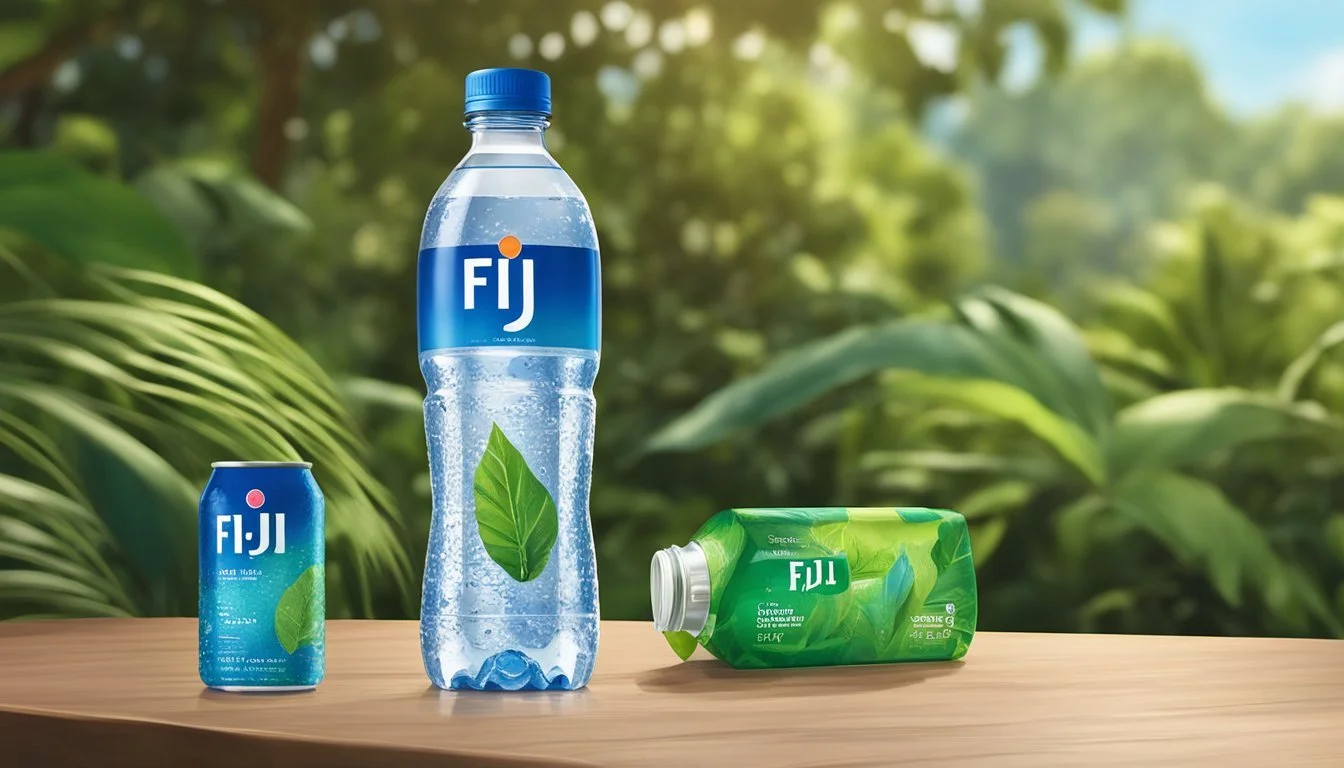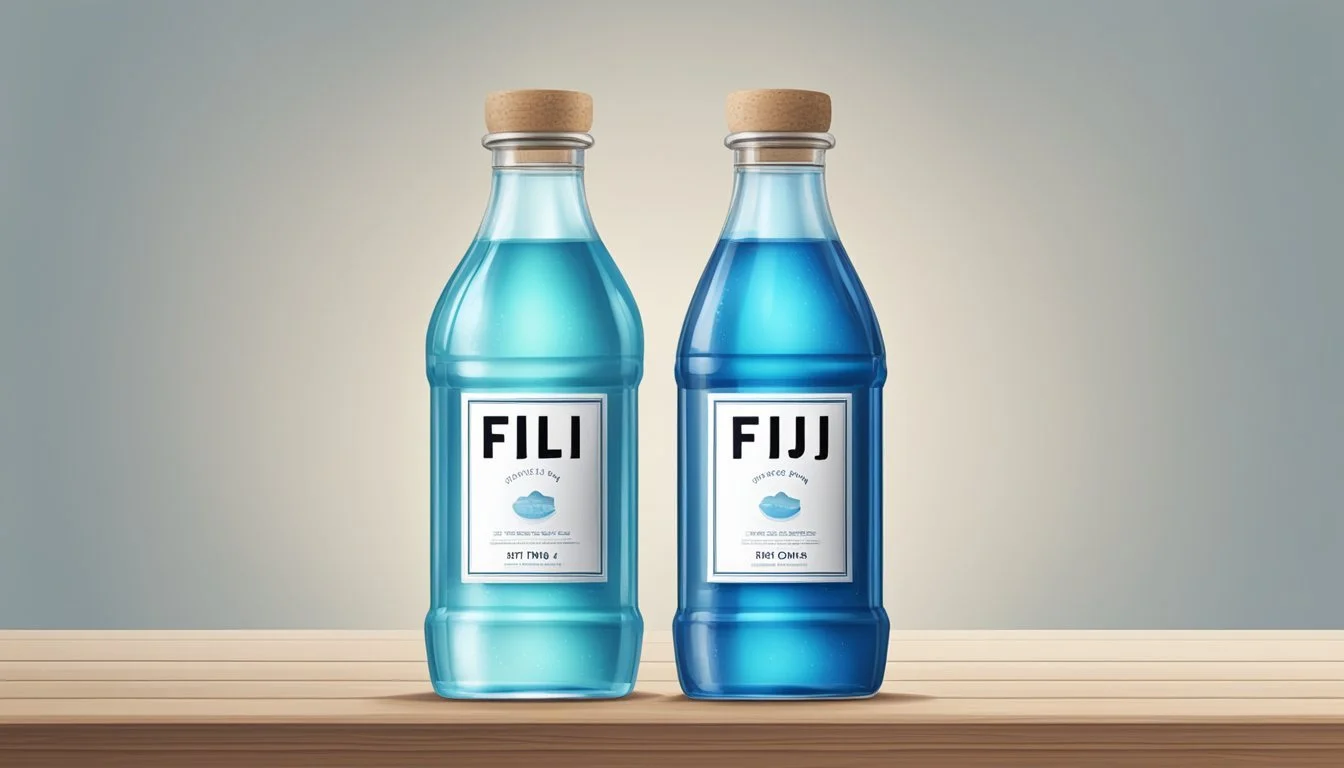Fiji vs. Origin
Comparing Premium Bottled Waters
When it comes to choosing the best bottled water, many consumers find themselves debating between Fiji and Origin. Both brands are renowned for their premium quality and distinct tastes, but there are key differences that may influence your decision.
Origin prides itself on offering water that is purer and closer to natural spring water. Fiji, however, has built a reputation with its unique mineral profile and smooth taste, sourced from an artesian aquifer in the remote Fiji Islands. For those looking for a smoother, more luxurious taste, Fiji Water stands out as the preferred choice.
Environmental concerns also play a significant role in this comparison. Both Fiji and Origin use single-use plastic packaging, which can have significant environmental impacts. By considering taste, purity, and environmental footprint, readers can make an informed decision on which bottled water brand suits their needs best.
Understanding Bottled Water
The bottled water industry offers a variety of products, each with distinct characteristics and regulations. Consumers can choose from several types of bottled water, each catering to different preferences and health considerations.
Types of Bottled Water
Bottled water comes in various forms, primarily categorized as mineral water, spring water, and artesian water. Mineral water contains naturally occurring minerals and is typically sourced from protected underground reservoirs. Spring water is collected from natural springs, where water flows naturally to the surface. Artesian water is drawn from a well tapping a confined aquifer, often under pressure.
Each type has unique properties. Mineral water is valued for its mineral content, which can include calcium, magnesium, and potassium. Spring water is appreciated for its natural origin and perceived purity. Artesian water is distinguished by its source and the protective measures against contamination.
Regulations and Standards
Regulations and standards ensure the safety and quality of bottled water. In the United States, the Food and Drug Administration (FDA) oversees bottled water, aligning its regulations with those set by the Environmental Protection Agency (EPA) for tap water. These standards cover contaminant levels, labeling, and good manufacturing practices.
Labels on bottled water must indicate the source and any added treatments. Certain terms, like "mineral water" or "spring water," have specific regulatory definitions. Compliance with these standards assures consumers that the product is safe to drink and meets quality expectations.
Internationally, standards may vary. The World Health Organization (WHO) and the International Bottled Water Association (IBWA) also provide guidelines to maintain consistency across different markets.
Comparative Analysis: Fiji vs. Origin
Fiji and Origin, two prominent bottled water brands, differ significantly in terms of their source, mineral content, taste, environmental impact, and pricing. The following section explores these differences comprehensively.
Source and Natural Filtration
Fiji water originates from an artesian aquifer in Viti Levu, Fiji, known for its natural filtration through volcanic rock. This process enriches the water with silica and electrolytes.
Origin sources its water from a pristine aquifer in Australia. The filtration process involves passing through multiple layers of sands and rocks, ensuring purity.
Fiji:
Artesian aquifer
Volcanic rock filtration
Rich in silica
Origin:
Australian aquifer
Sand and rock filtration
Emphasis on purity
Mineral Content and Health Benefits
Fiji water has a notable mineral content that includes silica, calcium, and magnesium, contributing to a softer taste. The silica is beneficial for skin health and bone strength.
Origin water is also rich in essential minerals like calcium and magnesium but in slightly different proportions. This gives it its own set of health benefits, especially in maintaining hydration and muscle function.
Mineral Fiji (mg/L) Origin (mg/L) Calcium 18 22 Magnesium 15 17 Silica 93 12
Taste Profile
Fiji water has a smooth, clean taste, partly due to its unique silica content. The volcanic rock filtration process imparts a distinct smoothness that appeals to many consumers.
Origin water, with its mineral composition, offers a crisp and refreshing taste. The balance of minerals in Origin gives it a slightly different mouthfeel compared to Fiji, catering to diverse preferences.
Fiji: Smooth and soft
Origin: Crisp and refreshing
Environmental Considerations
Fiji's bottling process and transport from Fiji to global markets have raised concerns about carbon emissions. Additionally, the use of single-use plastic packaging contributes to environmental degradation.
Origin emphasizes sustainability, focusing on reducing its carbon footprint. The brand often highlights using local sources and implementing eco-friendly practices in their packaging and distribution.
Fiji: High carbon footprint due to transportation
Origin: Local sourcing and eco-friendly practices
Packaging and Sustainability
Fiji water is packaged in attractive, but non-recycled, plastic bottles, which have been criticized for environmental impact.
Origin uses recycled and recyclable materials for its packaging, demonstrating a commitment to sustainability. The packaging design is often simpler, focusing on reducing waste.
Fiji: Non-recycled plastic
Origin: Recycled and recyclable materials
Price Point and Accessibility
Fiji water is positioned as a premium brand, with a price range of approximately $2.00 - $2.50 for a 500ml bottle. Its global distribution ensures widespread availability, albeit at a higher price.
Origin, while also considered premium, is priced slightly lower, around $1.80 - $2.20 for a similar quantity. It is widely accessible, especially within Australia and neighboring regions.
Brand Price (500ml) Distribution Fiji $2.00 - $2.50 Global Origin $1.80 - $2.20 Regional
Each brand offers unique attributes that appeal to different consumer preferences, from taste and health benefits to environmental and pricing considerations.
Health and Safety Aspects
When comparing Fiji and Origin bottled waters, it's important to examine their health benefits and purity. Key factors to consider include pH levels and potential contaminants.
PH Levels and Alkalinity
The pH level of bottled water indicates its acidity or alkalinity, with 7 being neutral. Fiji Water has a slightly acidic pH of 6.96, whereas Origin bottled water usually has a pH closer to neutral, around 7.0.
Maintaining a balanced pH is crucial for health. While both brands fall within safe drinking ranges, Origin's closer-to-neutral pH can be more beneficial for those sensitive to acidity. Alkaline water proponents suggest that higher pH levels may help neutralize acid in the body, though scientific support is limited.
Contaminants and Purity
Purity is essential to water safety. Fiji Water comes from an artesian aquifer in Fiji, ensuring a natural filtration process that removes most contaminants. Rigorous testing confirms low levels of heavy metals like lead and arsenic, making it safe for consumption.
Origin bottled water, sourced from protected springs, also undertakes extensive purification. Its stringent checks ensure minimal contaminants, though specifics on heavy metals aren't as publicly detailed as Fiji's. Both brands prioritize purity, but transparency about their testing results may influence consumer confidence.
Environmental and Production Factors
Environmental and production factors are crucial in determining the sustainability of bottled water brands like Fiji and Origin. These factors include resource consumption and carbon footprint, as well as recycling practices and environmental policies.
Resource Consumption
Resource consumption for bottled water production involves the use of natural water sources and packaging materials. Fiji Water sources its water from an artesian aquifer in Viti Levu, Fiji, highlighting its remote and pristine location. The extraction of this water requires significant energy and contributes to natural resource depletion.
Origin, on the other hand, aims to utilize local sources closer to its distribution areas. This approach minimizes the energy required for transportation. Moreover, the packaging materials of each brand play an essential role. Fiji Water uses plastic bottles, while Origin opts for more sustainable packaging options, such as recyclable materials, to reduce environmental impact.
Carbon Footprint and Recycling
The carbon footprint of bottled water production extends from manufacturing to distribution. Fiji Water’s remote source requires extensive transportation, resulting in higher carbon emissions. The production process involves significant energy consumption, further elevating its carbon footprint.
Origin seeks to mitigate these impacts through local sourcing and reduced transportation distances. Additionally, the recycling rates of packaging materials are vital. Fiji Water’s single-use plastic bottles contribute to pollution unless properly recycled. Origin’s use of recyclable packaging encourages better waste management and aligns with eco-friendly practices.
Adhering to strict environmental policies is essential for both brands to reduce their carbon footprint and enhance their sustainability efforts.
Brand Profiles
Fiji Water and Origin present distinct features and market appeals, making each brand unique. This section highlights the specific attributes and reputations of both brands, providing insights into their origins, market presence, and community impact.
Fiji Water: Brand and Community
Fiji Water is sourced from an artesian aquifer in Yaqara, Viti Levu, Fiji. The brand markets itself as a premium bottled water, renowned for its high mineral content and natural electrolytes, which result from filtering through volcanic rock.
The distinctive square-shaped bottles have become an icon of the brand.
Reputation: Fiji Water holds a strong reputation among health-conscious consumers, often being associated with purity and premium quality.
Community Impact: The Fiji Water Foundation commits to supporting local Fijian communities by funding projects related to education, health, and environmental sustainability.
Despite its global success, the use of single-use plastic for packaging has received criticism for potential environmental harm.
Origin and Its Market Presence
Origin brand bottled water focuses on delivering natural spring water with a commitment to environmental sustainability. Origin sources its water from protected springs in the United States and positions itself as a sustainable alternative within the bottled water market.
Brand Reputation: Origin's reputation is built on transparency about its sourcing and production processes. The company prioritizes eco-friendly packaging solutions, such as using recycled materials.
Market Appeal: Origin attracts consumers who are environmentally conscious and interested in both the purity of their water and the impact of their consumption habits. The brand emphasizes minimal processing to preserve the natural qualities of its spring water.
Overall, Origin aims to balance market presence with responsible stewardship of natural resources.
More About Fiji
Fiji vs Mountain Valley Spring Water: Which Bottled Water is Better?
Fiji vs Whole Foods Italian Still Mineral water: Which Bottled Water is Better?





